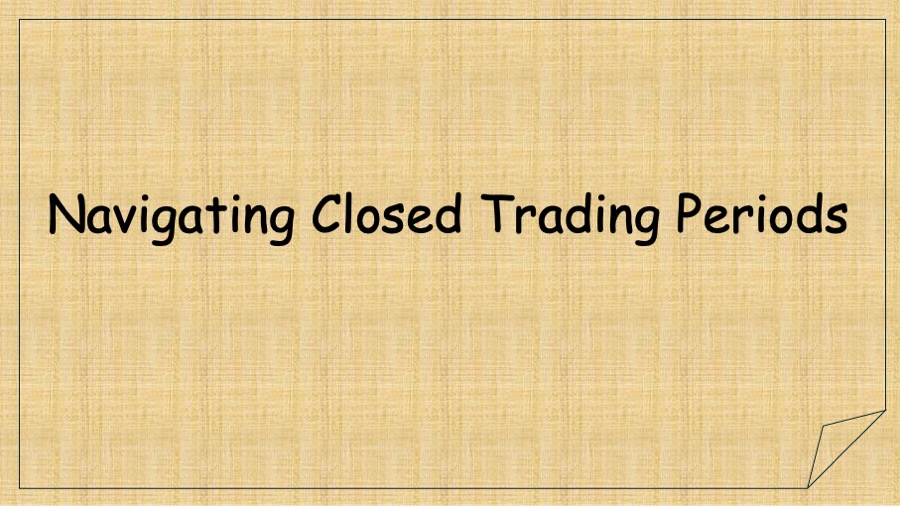Closed trading periods are essential safeguards in financial markets, designed to prevent insider trading and maintain market integrity. For Nigerian investors, understanding these rules and their implications is key to ensuring compliance and making informed decisions. This guide provides an in-depth look at closed trading periods, their regulatory framework, and actionable insights for investors.
What Are Closed Trading Periods?
A closed trading period is a designated timeframe during which insiders—such as directors, executives, and key stakeholders—are prohibited from trading a company’s shares. The primary aim is to prevent the misuse of unpublished price-sensitive information and ensure fairness in the market.
- Regulation Source: The Nigerian Exchange Limited (NGX) Rulebook mandates closed trading periods to uphold corporate governance and transparency standards.
- Typical Timing: Closed periods usually begin at the end of a financial quarter and last until 24 hours after the public release of financial results. They may also coincide with other significant corporate announcements, such as mergers, acquisitions, or leadership changes.
Who Is Affected by Closed Trading Periods?
- Insiders:
- This group includes directors, senior executives, and other key employees with access to non-public, price-sensitive information.
- Their trading activities are closely monitored to ensure compliance with the NGX Rulebook.
- Connected Persons:
- Immediate family members, business associates, and entities controlled by insiders are also subject to restrictions, as they may indirectly benefit from privileged information.
- Investors Monitoring Insider Activity:
- Retail and institutional investors should be aware of closed periods, as they can influence market liquidity and trading patterns. Insights into insider trading behavior often signal confidence (or lack thereof) in a company’s prospects.
Recent Examples in Nigeria
- Chemical and Allied Products Plc (CAP):
- CAP announced a closed trading period starting January 1, 2025, lasting until 24 hours after the release of its 2024 financial statements. This aligned with NGX compliance timelines.
- Transcorp Hotels Plc:
- Transcorp Hotels similarly declared a closed period beginning January 1, 2025, tied to the submission of its Q4 2024 unaudited and audited financial results.
- Presco Plc:
- Presco Plc notified investors of its closed period, effective January 1, 2025, as part of preparations for the release of its 2024 audited financial statements.
Why Are Closed Trading Periods Important?
- Preventing Insider Trading:
- Closed periods mitigate the risk of insiders exploiting unpublished information for personal gain, preserving fairness in the market.
- Promoting Market Integrity:
- These periods foster trust among investors by ensuring that all market participants have equal access to critical information at the same time.
- Aligning with Global Standards:
- Enforcing closed trading periods aligns Nigerian financial markets with international best practices in corporate governance, improving the country’s investment attractiveness.
What Should Investors Do During Closed Trading Periods?
- Stay Informed:
- Monitor corporate announcements on closed periods through the NGX platform or company websites. Staying updated helps investors avoid trading during restricted times.
- Plan Ahead:
- Investors with substantial holdings should align their trading strategies to ensure compliance, avoiding trades during closed periods to mitigate regulatory risks.
- Leverage Public Disclosures:
- Use the financial results and disclosures released after closed periods to make well-informed investment decisions based on accurate and timely data.
Implications of Non-Compliance
- Legal Consequences:
- Insiders caught trading during closed periods face significant penalties, including hefty fines and reputational damage, as enforced by the Securities and Exchange Commission (SEC) and NGX.
- Market Consequences:
- Non-compliance erodes investor confidence in the fairness of the market, potentially leading to reduced liquidity and lower valuations for the company involved.
Future Outlook for Closed Trading Period Management
- Enhanced Transparency:
- Companies are increasingly adopting digital platforms to communicate closed periods and other financial disclosures efficiently. This improves accessibility and reduces the risk of unintentional violations.
- Technology Integration:
- Advanced monitoring tools, such as blockchain and artificial intelligence (AI), are being explored to automate the enforcement of trading restrictions, ensuring compliance with minimal manual oversight.
- Investor Education:
- Programs to educate investors on the importance and rules of closed trading periods are gaining traction. By raising awareness, these initiatives strengthen overall market integrity.
Conclusion
Navigating closed trading periods is crucial for maintaining compliance and fostering trust in the Nigerian financial markets. By understanding the rules, monitoring corporate announcements, and aligning trading strategies with regulatory guidelines, investors can avoid pitfalls and make informed decisions. As markets evolve, the integration of technology and enhanced transparency will further streamline the management of closed trading periods, ensuring a fair and equitable trading environment.
